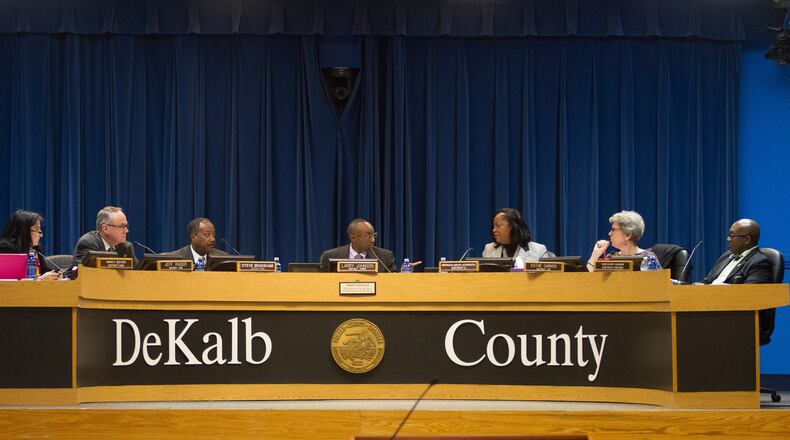When the DeKalb Board of Commissioners approved this year's county's budget, they finally found a way to nearly eliminate $27 million in deficit spending.
The answer was simple math: Hold the line on expenses even as tax collections are projected to increase.
Commissioners dedicated $24.7 million in new tax revenue to shoring up the county's finances when they passed a mid-year 2017 budget last month.
As a result, the government’s deficit for tax-funded services shrank to $2.4 million while its savings accounts grew. The county now estimates it will have enough money held in reserve, $53.5 million, to cover more than a month’s worth of general operations.
"Historically, county budgets have appropriated more revenue than the county was projected to collect," wrote DeKalb CEO Mike Thurmond in his June budget recommendation to commissioners. "I am committed to proposing a FY2018 budget that will eliminate deficit spending in DeKalb County."
Both Thurmond and county commissioners decided not to increase government spending despite taking in more tax money as property values rose again this year. Residential real estate assessed values are going up by nearly 8 percent, resulting in higher tax bills for many homeowners.
Tax-funded expenses remained steady at $606.5 million, the same amount appropriated in the initial county budget passed in February, while revenue increased to $604.1 million.
The other half of the county's budgeted spending, largely funded through water and sewer fees, declined slightly.
In all, the county’s mid-year 2017 budget amounted to $1.27 billion, a 2 percent decrease from the spending plan approved in February.
The budget covers services including police, fire, courts, the jail, animal services, emergency management, elections, sanitation, water and sewer.
About the Author
Keep Reading
The Latest
Featured




